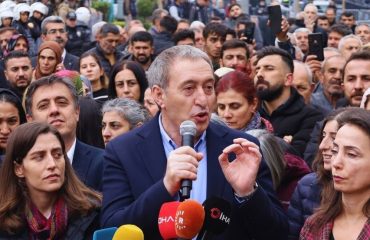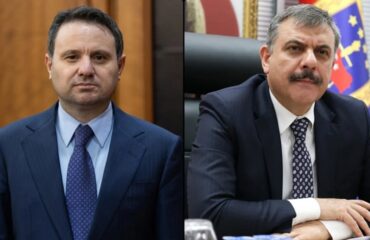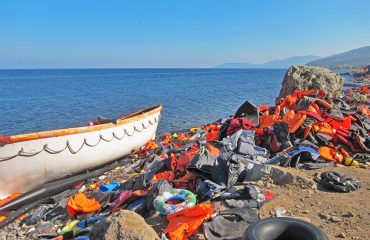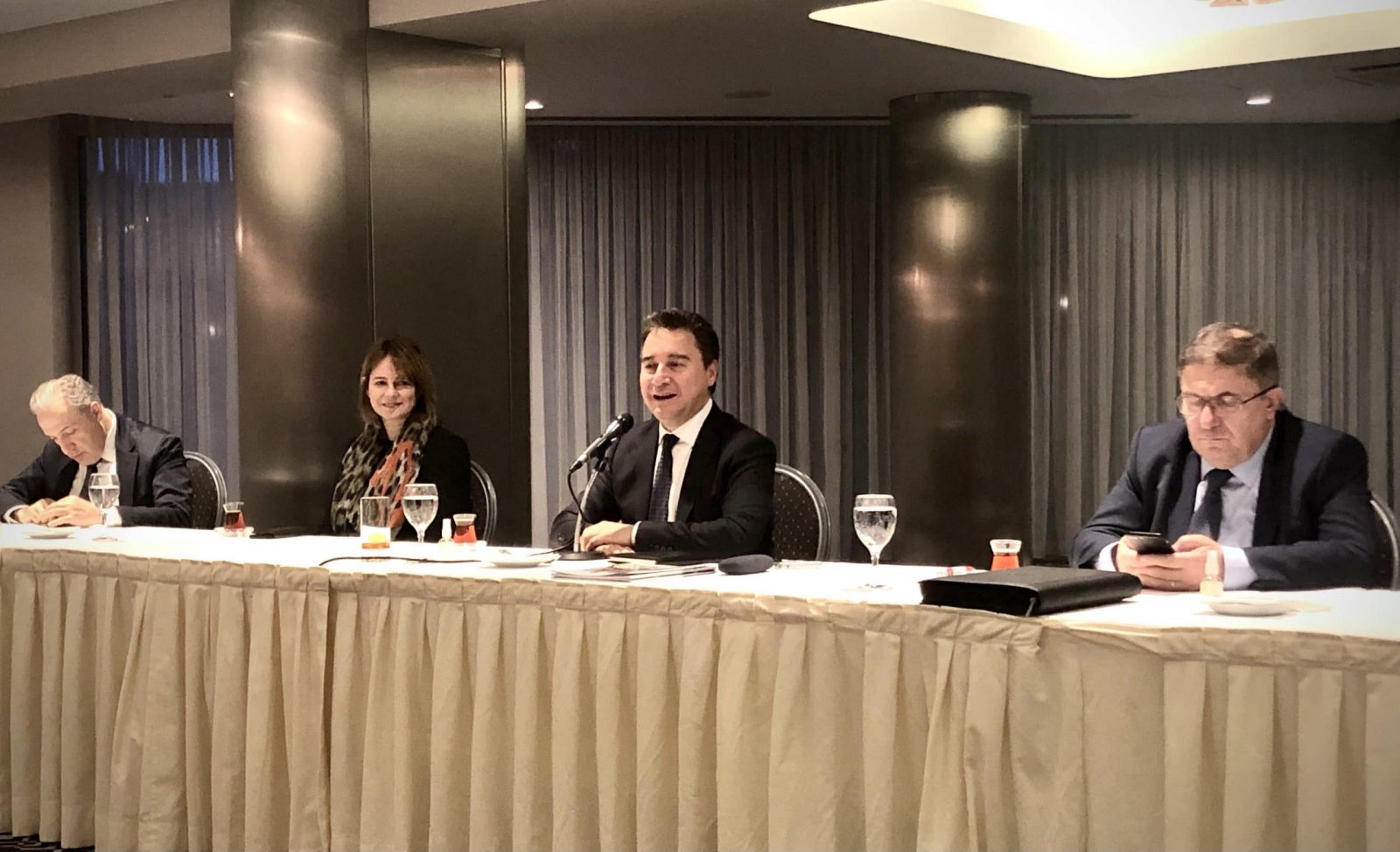
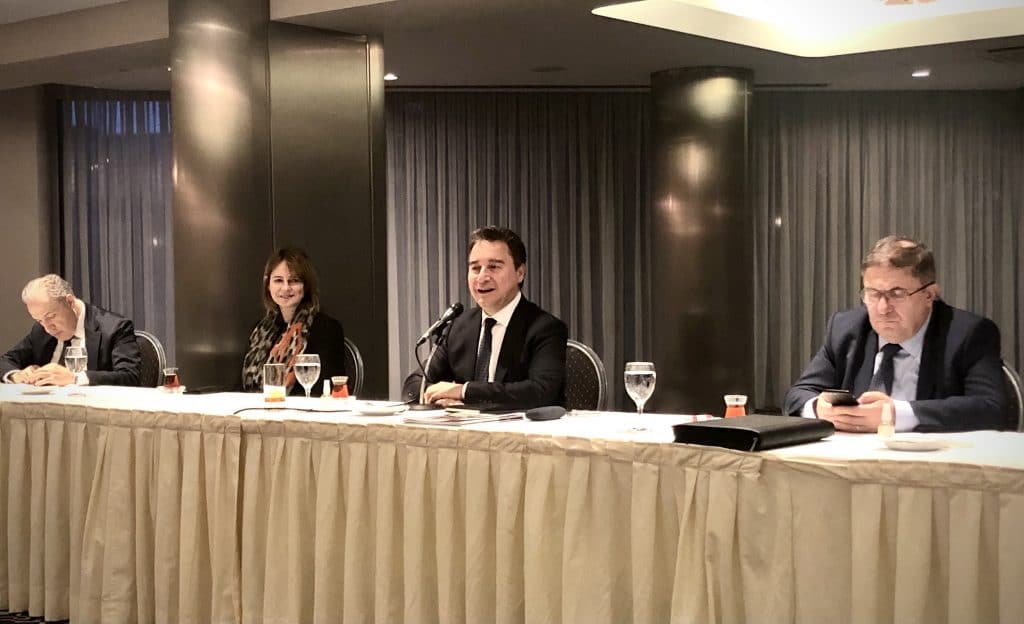
“My wife and I were going somewhere in the evening, I was driving the car. We entered the gas station to fill the tank. The filling station attendant recognized me, he waved, I lowered the window. “Do you know?” he said, “I will probably be an unemployed next week”. He began to explain: “We employ 20 people here. The monthly electricity bill of the station increased to 145 thousand Turkish Liras. The boss cannot exceed the retail margin from gasoline and diesel. Costs are increasing. We see that the boss is making a loss. He will obviously reduce staff. So I probably won’t have a job next week.”
The anecdote is from Ali Babacan, leader of the newly established opposition party Democracy and Progress Party (DEVA). He told this story at the press conference held in Ankara on March 8, to mark the second anniversary of DEVA. On that day, the government had increased the fuel price for the 6th working day in a row, and gasoline started to be sold 162 percent and diesel 212 percent more expensive than they were sold 6 months ago.
According to the estimations of İbrahim Çanakçı, Deputy Leader of DEVA in charge of economic policies, the Central Bank seemed to have sold 500 million US Dollars only to stop the dollar rate from climbing above 14.5 Turkish Lira that day. Due to the Ukraine Crisis, the “leakage”, i.e the unexplained loss of resources, amounted to 4-5 billion dollars in the last two weeks.
“People are patient because they are waiting for the ballot box”
On the same day, President Tayyip Erdoğan said to healthcare workers and medical doctors who demanded improvement in their working conditions, “they can leave if they want to.” His words came as in the Turkish Medical Association (TTB) announced that in 2021, 1200 medical doctors migrated abroad because of the hard conditions. The number was 59 in 2012. Vedat Bulut, Secretary General of TTV answered Erdoğan’s ultimatum saying, “Erdogan will leave, medicine will remain”.
TTB declared a strike except the emergency and intensive care services for 14-15 March in protest. It was a latest part of a series of protests of healthcare workers. On the same day, the government closed the subway stations in one of the busiest areas of the city of 16 million people and mobilized the police in order to prevent women from peacefully marching on Istiklal Street of İstanbul, for March 8, International Working Women’s Day.
“There is a crisis in every field,” Babacan was saying, “and the crisis is getting deeper”.
NGOs across the country that did not respond to meeting requests of DEVA two years ago were now offering their services. Traffic on the main street was blocked due to the interest shown to them in a district like Kırıkhan in Hatay, where the total votes of the AK P and the MHP reached 90 percent in the last election. “The threshold of fear is dropping fast,” he said.
He said that “people are patient because they wait for the ballot box to be put in front of them”.
The going is towards alliance but…
Six opposition parties announced their Strengthened Parliamentary System Draft on February 28. In the 2023 elections, if they overthrew President Tayyip Erdogan and got the majority to amend the Constitution, they would change the regime that dragged the country into a one-man regime.
The six party leaders, who met for the first time on February 12, hosted by CHP leader Kemal Kılıçdaroğlu, are going to hold their second meeting on March 27 in Ankara, this time hosted by Babacan.
Babacan says “the trajectory is to an alliance”, but he adds that, for “a possible alliance to be clarified”, the leaders need to reach a consensus on two issues.
The first is what the transition process will be like if the election is won. Babacan says, it is not a solution to say “Turkey will get better when they went”. “We need to decide in advance how we will do it.” He mentions that if the power is attained unprepared, there may be a shift from one autocratic leader to another, and the nation may seek a savior. There are examples of this in the world. He says that in which areas, from economy to foreign policy to social policies, the “possible alliance” should work together should be determined. The second is “principles and values”.
Cautious optimism
Journalist Orhan Uğuroğlu said that he found Babacan “pessimistic”
Babacan, who previously served not only as the Minister of Economy but also the Minister of Foreign Affairs, used the phrase he borrowed from diplomacy for the “possible alliance”: cautious optimism.
I think “cautious optimism” can be an explanatory statement for those who are pessimistic about the opposition coalition, as much as for those who are overly optimistic about it. The opposition coalition still has a long way to go.
On the other hand, there is an alliance that HDP is trying to form with leftist parties. “We are talking with HDP,” Babacan said, “They said it went well”. Like other parties, DEVA noted the HDP’s statement that they will take a stand according to the candidate to be determined by the “possible alliance” with six parties.
What about candidate? Despite persistent questions, he does not give an answer, he says, “It is not the subject of today.”
Similar answers are given to the questions “the deadline for the alliance”. Babacan replied, “It would not be right to press ourselves and give ammunition to the other side.
